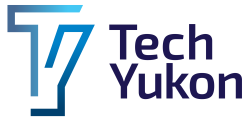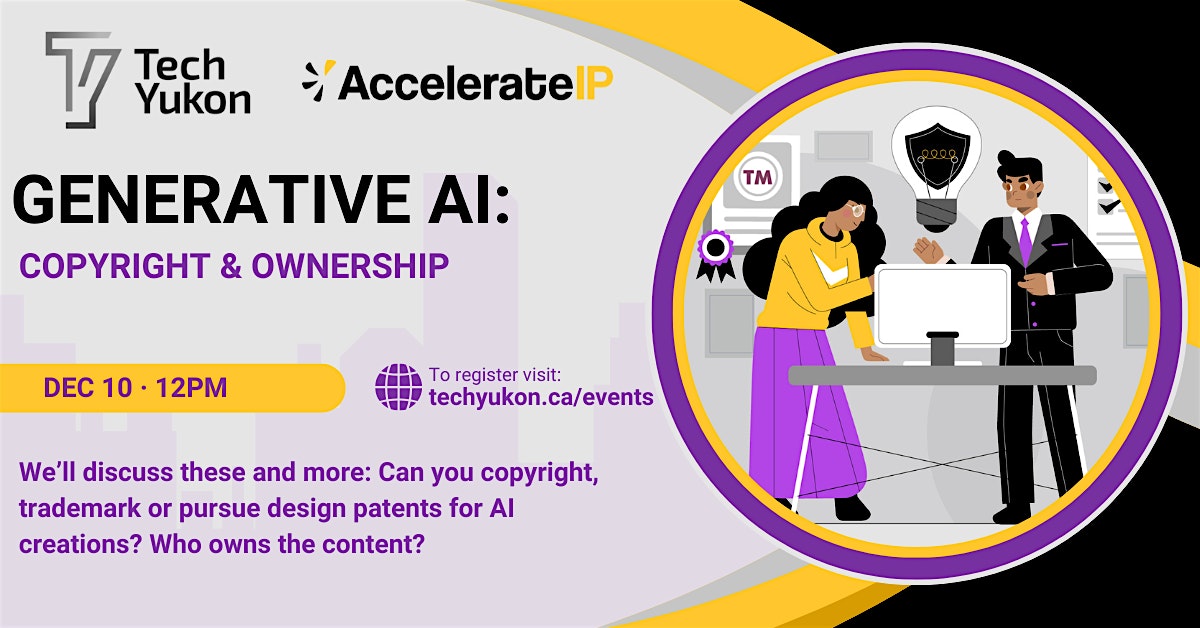We had the pleasure of hosting Chang Han, lead entrepreneur-in-residence at entrepreneurship@UBC, investor for the Genome BC i-Squared Fund, and IP Executive in Residence for AccelerateIP for a discussion on the very thought provoking topic of Copyright and Ownership for content created using generative AI tools.
Here are some key takeaways:
- Copyright law, like patents, varies by jurisdiction (country). That said, there are more similarities than differences.
- Going off case precedence in the US, the current stance (as of December 2024) for the US legal system is that there is NO copyright in AI generated works.
- We discussed the case of Thaler v. Perlmutter.
- The common stance, which is also observed in copyright legislation for many other countries, is that, to be protected by copyright, a work must meet the following requirements:
- Be original.
- Be fixed in a tangible medium, such as written on paper, recorded on tape, or painted on canvas.
- Be created by a human being (we also discussed the case of Naruto v. Slater)
- As insinuated by the language (citizen of a country, lifetime of the creator…)
- Prompts do not count as “human authorship” – technology generated not the same as technology assisted. Prompt input is more of a mechanical process, low to no use of human skill or judgement.
- If person does not put forth sufficient independent intellectual effort to shape the work, it likely won’t satisfy requirement for originality.
- Copywrite does not protect the idea, but the expression of the idea.
- As it stands, the AI (or the company that produced the AI), does not maintain any copyright protection on works created using the AI.
- However, data used to train the AI may be subject to copyright protection (we discussed “Heart on My Sleeve” a song written and produced by TikTok user Ghostwriter977, with AI-generated vocals made to sound like Canadian musicians Drake and The Weeknd.
- It’s still grey on ownership by the human author. If there is clear creative intention and contribution by the human, it may still be granted.
As with any innovative technology, the legal system is still playing catchup and trying to figure out an equitable and reasonable approach to moderation. Much still remains unanswered and may change as new laws come to pass.
Here are some of my own questions coming out of the session (which we may not have answers to yet):
- What if content is AI generated, but heavily edited by human?
- e.g. used AI to generate lyrics for a song, to which you edit, add the beat, and personally vocalize.
- How about if it’s human generated, but AI edited
- e.g. if photographers use AI in Photoshop to edit and change a background.
- Human -> AI -> Human
- e.g. If I train AI on my voice/writing style, then have it generate something using my own voice/writing style.
- Copyright vs. Ownership, Is there a difference?
- e.g. AI generated code, even if not recognized as copyright, can a company still safeguard it as a trade secret and pursue legal action if someone leaks it?

